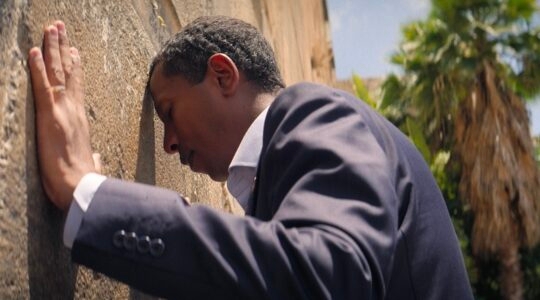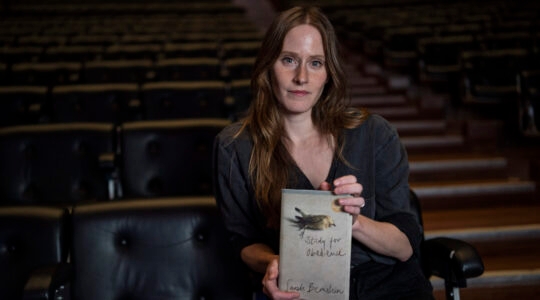Blogging for Ha’aretz, Alex Sinclair complains about Judaism and the Jewish people being represented on Diseny World’s "It’s a Small World" ride by an ultra-Orthodox wedding:
There are no recognizably Israeli dolls. There are two Jewish dolls: an ultra-orthodox couple getting married under a traditional chuppah. He is dressed like a typical Chareidi Jew, with black pants, white shirt, and a beard. She is a modestly-attired bride.
Let me count the ways in which this representation of Jewishness irked me.
First of all, it presents Jewishness in entirely religious terms. There is nothing national-sovereign about these Jewish dolls. For a ride that is meant to be about different countries, the portrayal of the Jewish dolls seems to de-nationalize Jewishness, and hence Israel as a national-sovereign-Jewish site is basically absent from the parade of countries in the ride.
Secondly, while all the other dolls were dressed up in traditional national costumes that represented some kind of mainstream collective consciousness of the particular country, the Jewish dolls represent a highly specific demographic sector that is neither reflective of, nor seen as symbolically representative by, the national collective. In other words, while not every Briton dresses like a Beefeater, not every Italian rides a gondola, and not every Japanese wears a kimono, the activities and costumes of those dolls would probably be seen by Brits, Italians, and Japanese, as an agreeable and consensual symbol of their country. Clearly that is not the case when it comes to Israelis — or Diaspora Jews — and the Chareidi dolls.
The problem, Sinclair acknowledges, is that he’s not sure what to replace them with:
“It’s a small world,” then, has highlighted for me Israel’s great challenge in the coming years. We have a basic and gaping lack of consensual symbols. Even in ethnically diverse contemporary Britain, the Beefeater doll is still in some way a symbol that everyone can smile at and say “yes, that’s us.” Even urban, trendy, Vespa-riding Romans who have never been to Venice in their lives will point out the gondola to their children with pride and ownership. But I can’t conceive of a doll that Israelis — all Israelis (you know what, I’d even settle for “most Israelis”) — would feel that connection to.
It’s true that Israel’s rich ethnic, religious and cultural diversity is one of its great wonders and beauties. But a country without consensual symbols cannot be a country. Perhaps you’d argue that the Israeli doll should be an IDF soldier, but that’s a depressing and frankly pathetic answer, an answer that has Sartre saying “I told you so” from his grave. When, please God, peace finally comes, we’d better figure out what we want our “it’s a small world” doll to be… if only for my own peace of mind when I’m enjoying the ride on my next visit.
Read Sinclair’s full post.

Help ensure Jewish news remains accessible to all. Your donation to the Jewish Telegraphic Agency powers the trusted journalism that has connected Jewish communities worldwide for more than 100 years. With your help, JTA can continue to deliver vital news and insights. Donate today.





